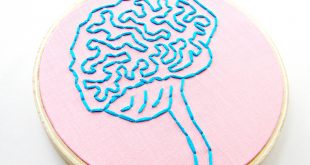Many college students experience symptoms of insomnia. Unfortunately, college students who experience problems with sleep may also be at risk for engaging in unhealthy behaviors such as maladaptive eating patterns and behaviors. However, little is understand about why insomnia and aspects of eating are related. The current study examined difficulties …
Read More »Brief report: Sudden gains in Cognitive-Behavioral Group Therapy and Group Psychotherapy for Social Anxiety Disorder among College Students
Studying patterns of symptom change in psychotherapy has potentials for identifying how specific theory-driven treatment techniques and non-specific factors (i.e., those that are common across treatment modalities, such as the therapeutic alliance) interact to create change over the course of treatment; which has important implications for enhancing treatment effectiveness (Kazdin, …
Read More »Meta-Analysis of the Efficacy and Acceptability of Cognitive-Behavioural Therapy for Arab Adult Populations Experiencing Anxiety, Depression or Posttraumatic Stress Disorder
Little is known about the response of Arab adults to psychological treatments. One psychological treatment that may be compatible with Arabs preferences for a short-term and directed psychological treatment that focuses on practical skills is Cognitive Behavioural Therapy (CBT). CBT is an effective psychological treatment for anxiety, depression and PTSD …
Read More »Development and evaluation of a scale assessing therapist fidelity to guidelines for delivering therapist-assisted Internet-delivered cognitive behaviour therapy
Do therapists who deliver therapist-assisted Internet-delivered Cognitive Behaviour Therapy (ICBT) adhere to specific behaviours when delivering this service? What is the quality of the therapeutic assistance provided in ICBT? Do raters agree on therapist competence in delivering ICBT and what factors are associated with greater therapist competence with this mode …
Read More »Identifying the role of sociodemographic factors in major depressive disorder and suicidality among Spanish-speaking Latino patients in a federally qualified health center
Rates of suicide and major depressive disorder (MDD) are currently at the highest point in the history of the United States (US). However, these rates are not distributed evenly among the population and Latinos show disproportionately high rates of both suicide and MDD. Yet, past research has infrequently explored factors …
Read More »The role of personal practice in therapist skill development: A model to guide therapists, educators, supervisors and researchers
Personal practice for therapists – should it be a core part of our training and professional development? During the twentieth century, personal therapy was just about the only recognised personal practice option for therapists (Rønnestad, Orlinsky, & Wiseman, 2016). It was (and still is) a mandatory requirement in some schools …
Read More »Pain-related anxiety and opioid misuse in a racially/ethnically diverse young adult sample with moderate/severe pain
Pain problems are a significant public health problem, as they are related to increased healthcare cost, decreased productivity, and opioid misuse. With opioid-related problems and death due to overdose at an all-time high, there is significant public health importance to identify risk factors for opioid misuse among persons with moderate …
Read More »Augmenting treatment efficiency in exposure therapy for PTSD: a randomized double-blind placebo-controlled trial of yohimbine HCl
The alpha-2 adrenergic receptor antagonist, yohimbine, can facilitate fear extinction in animals and humans. One potential mechanism is increased noradrenergic activity and associated arousal in the presence of conditioned stimuli. Accordingly, yohimbine might augment prolonged exposure (PE) therapy for posttraumatic stress disorder (PTSD), where heightened exposure-oriented arousal is a theorized …
Read More »Meta-analysis of the effects of cognitive-behavioral therapy on the core eating disorder maintaining mechanisms: Implications for mechanisms of therapeutic change
Cognitive-behavioural therapy (CBT) is the most effective psychological treatment for a variety of eating disorder presentations in adults. However, little is known about how, why, or through what mechanisms, CBT achieves its effects. The cognitive theory that underpins cognitive-behavioural treatment proposes that CBT “works” through modifying dietary restraint and dysfunctional …
Read More »Who benefits from psychotherapies for adult depression? A meta-analytic update of the evidence
It is not clear whether specific target groups for psychotherapies in adult depression benefit as much from these treatments as other patients. We examined target groups that have been examined in randomized trials, including women, older adults, students, minorities, patients with general medical disorders, and specific types of depression, and …
Read More » Cognitive Behaviour Therapy A peer reviewed, multidisciplinary journal devoted to the application of behavioural and cognitive sciences to clinical psychology and psychotherapy.
Cognitive Behaviour Therapy A peer reviewed, multidisciplinary journal devoted to the application of behavioural and cognitive sciences to clinical psychology and psychotherapy.









